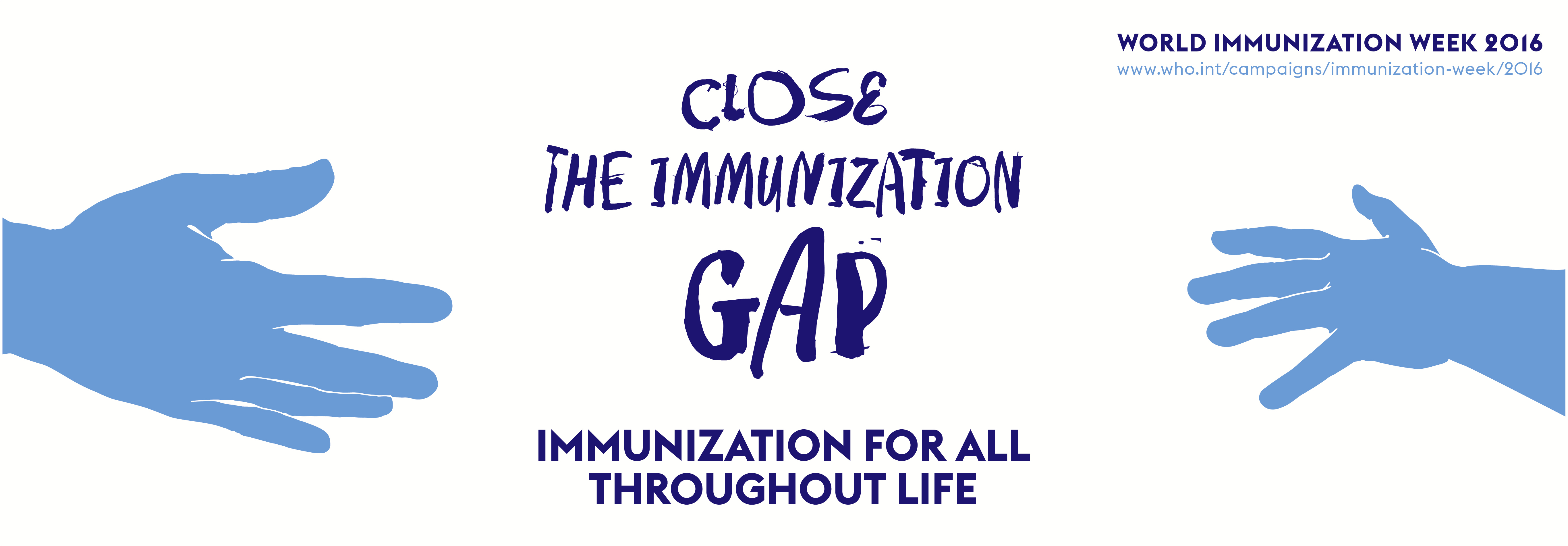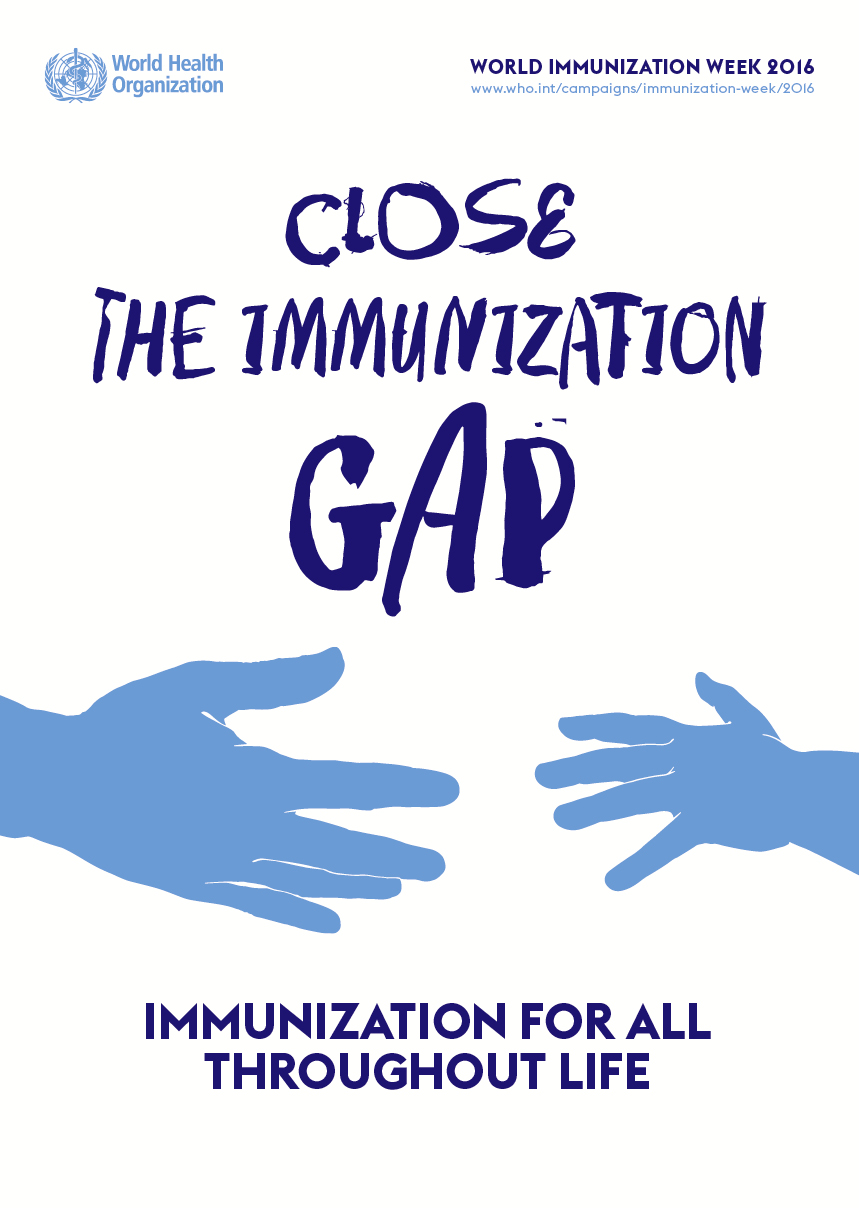
Immunization is one of the most successful and cost-effective means to help children grow into healthy adults. We have made enormous progress, but one in five children is still not being reached. In addition, too many adolescents and adults are not receiving the vaccines they need to help them stay healthy throughout life. Parents and children’s carers - as well as adolescents, adults and health workers – need to understand the vital importance of keeping immunizations up to date throughout a person’s lifetime. People living as refugees or in countries currently beset by conflict or other emergencies deserve to get all vaccinations – just like everyone else – but this requires greater efforts. WHO has made it a priority to work closely with countries around the world to help them reach more people with vaccination and carefully monitor their progress.
World Immunization Week 2016 will focus on Closing the Immunization Gap - Immunization for all throughout life. This will be the second year of a multiyear campaign built on the theme 'Close the Immunization Gap'.
2016 Campaign Objectives
- To raise awareness worldwide on the critical importance of full immunization throughout life
- To highlight recent achievements, such as the phased introduction of a new polio vaccination regimen, which represents a critical step towards a polio-free world and the preparation for the globally synchronized withdrawal of type 2 OPV in 155 countries, thus eradicating type 2 polio virus, once and for all; elimination of rubella in the Americas; and elimination in Cambodia, India and Mauritania of tetanus among new mothers and new-born babies.
- To draw attention to exciting innovations, including progress on making vaccines against Ebola, malaria and dengue available
- To encourage global partnership on reaching the children, adolescents and adults – especially those living in countries with inadequate coverage and those affected by conflict or other emergencies – not benefiting from life-saving vaccines
- To increase recognition that governments, international organizations and other development partners need to align their efforts in strengthening leadership and accountability on achieving full immunization
- To call for action on achieving universal coverage for immunization against measles, rubella and tetanus.

